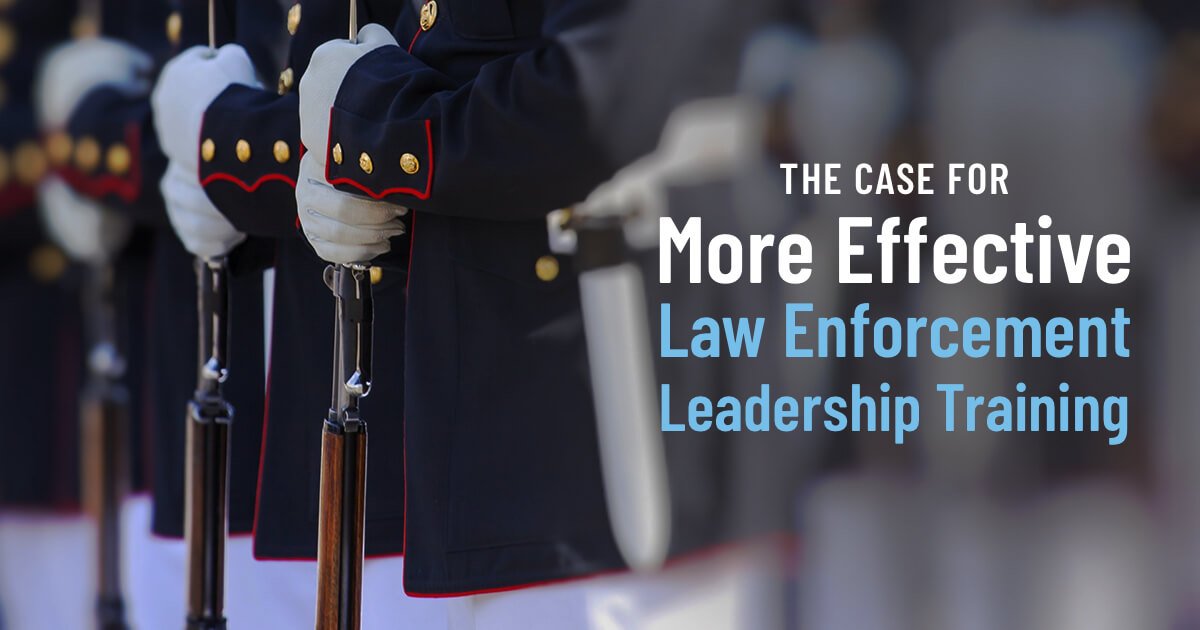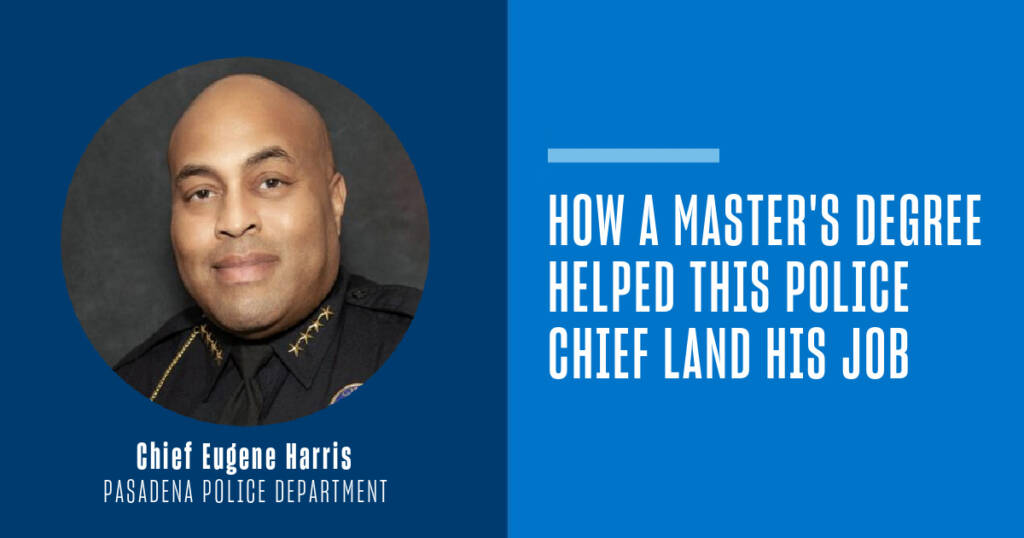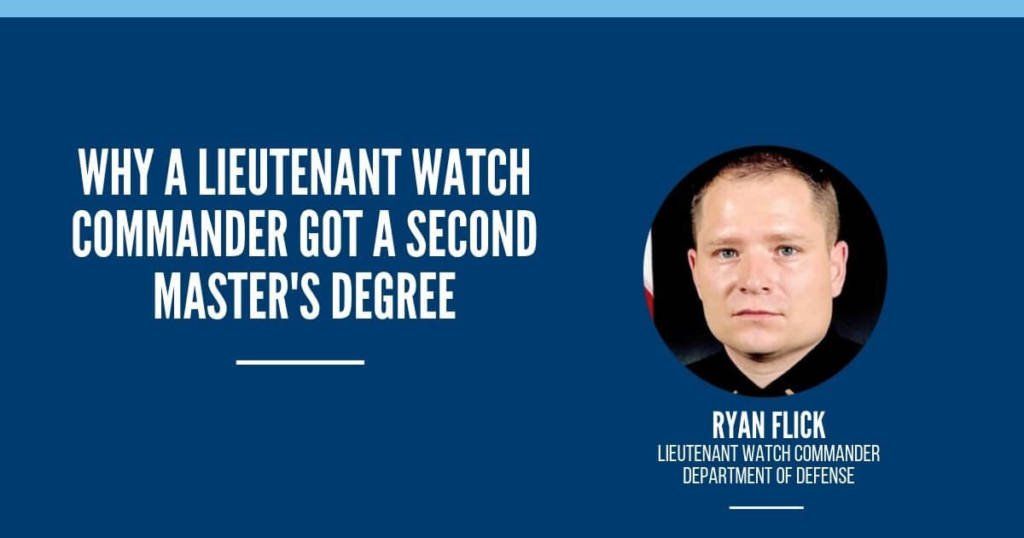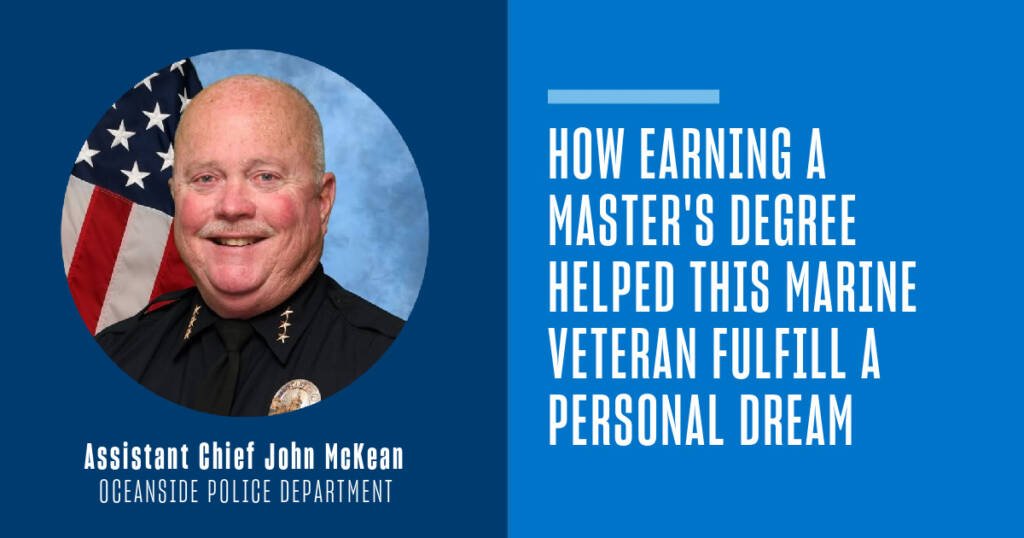Law enforcement is often compared to the military. But when it comes to promotions and training, especially for leadership roles, there is one very significant difference. In the military you receive the training before you assume the position; however, in law enforcement, very often there is no training for new supervisors or managers, or the training comes after you’ve already taken on the role.
In fact, the law enforcement profession “has created its own failing point,” with agencies across the country plagued by “lack of supervisory preparation,” according to a Police Magazine article by William Harvey, a Georgia police chief. “In most agencies, the training of an entry-level supervisor comes after their promotion. You are flying by the seat of your pants for months, if not years.”
The lack of thorough, proactive police management training looms even larger as many older, experienced officers are heading into retirement; this has created upper-level vacancies that are often filled by officers with little to no formal leadership and management training.
Commenting about law enforcement leadership in Police Magazine, Gatesville, Texas, Patrol Sgt. G.M. Cleverley contrasted the thorough training typically offered in the military with the inadequate training protocols that often characterize the field of law enforcement.
“I was in the military for many years prior to becoming a police officer,” he said. “Comparing the two careers, I see the military spends a lot of effort training supervisors. Each time you get promoted, you receive more leadership training. In the military, each person receives weeks to months of training at each promotion, while in policing a new supervisor is lucky to get a two- to three-day class. I see the military leaders as far more prepared for leadership positions than new police supervisors.”
[RELATED] Law Enforcement Leadership: Two Police Chiefs Share Career Advice >>
Police Leadership Training: Lessons Learned from the Military Approach
In a PoliceOne.com article examining lessons to be learned from a “military approach” to law enforcement leadership training, Wes Doss, Ph.D., an author and experienced military and civilian criminal justice training instructor, explains that — in contrast with law enforcement — “the military philosophy of training” is to emphasize a uniformly applied, “finely detailed and comprehensive program of leadership and individual development.”
Military organizations take leadership training so seriously, he said, that “it is often considered an organization’s primary responsibility when not at war” and is mandatory “regardless of season, weather, heat, cold or sleep.”
Doss points out that the military places far more emphasis on advanced training and leadership development early in one’s career than is typical in law enforcement. For example, he reports that, “while most police officers won’t get a chance to go to the FBI National Academy until they are a lieutenant or higher, or sit through something longer than a 24- to 40-hour management seminar, military first line supervisors must go to school to attain their rank.”
Doss also contends that, while it is not uncommon to see civilian law enforcement supervisors competing with subordinates for credit on accomplishments, “In the military, a supervisor is not judged based on his or her own accomplishments, but rather from the achievements of those he or she leads. The supervisor’s role is the mission as much as it is the development of his or her people to move up and eventually take his or her place.”
Law Enforcement Leadership Training: Why ‘Soft Skills’ Are Essential
Leading a law enforcement agency is an extremely challenging job that also requires mastery of what are often referred to as “soft skills” — such as communication, team building, problem solving and conflict resolution. Only rarely does someone naturally excel in these skills without some formal training, combined with years of practice. Still, many law enforcement agencies make promotional decisions based largely on an officer’s tactical skills without providing training in these all-important soft skills.
Communication
The connection between outstanding communications skills and effective police leadership cannot be understated since it is essential in almost every aspect of the job. Law enforcement leaders must possess the interpersonal skills to effectively communicate with fellow officers, subordinates, higher-ups, community members, governmental officials, other departments and jurisdictions, the court systems and the media.
The best law enforcement leaders understand how to communicate with people from diverse backgrounds, often under unpredictable conditions. They understand how to use communication to build trust, create transparency and foster an atmosphere of mutual respect and empathy, be it at the station, on the streets or in the courtroom.
Team Building
“When team members are invested in their roles and contributions, you have the highest probability for a successful outcome.”
This critically important observation regarding law enforcement team building is offered in a PoliceOne.com article titled “Lessons in Leadership: How Real Police Leaders Empower Teams.” The article follows up with three core recommendations for effective police team building:
- Empower your team with a sense of ownership.
- Don’t hijack your team’s opportunity to provide solutions.
- Make everything a learning opportunity.
Problem Solving
Essential elements in law enforcement problem solving include:
- A strong focus on proactive prevention.
- Gaining a complete view of the problem based on multiple sources of information.
- Involving affected parties in each stage of the problem-solving process.
- Use of a structured problem-solving process such as SARA (scanning, analysis, response, assessment).
- Ongoing assessment of the effectiveness of problem-solving procedures.
- Analysis of the root causes of recurring problems to aid preventative in efforts.
Conflict Resolution
Collaboration, ethics and emotional intelligence are three key aspects of conflict resolution for law enforcement leaders. Collaboration refers to investing all of the affected parties in efforts to develop a “win-win” strategy to resolve the issue.
Emotional intelligence suggests exercising the capacity to be aware of, control and express one’s emotions (for example, bringing a calm but firm demeanor to the process), as well as handling the issues and personalities involved in a judicious and empathetic manner.
A strong sense of ethical considerations, including personal and professional integrity, is also considered essential when navigating contentious issues and developing and executing effective, positive resolutions.
[RELATED] How a Master’s Degree Program Helped Police Chief Land His Job >>
Law Enforcement Leadership Skills: The Value of Advanced Education
Many law enforcement leaders seeking to further develop their skills in these essential aspects of law enforcement leadership do so by pursuing a master’s degree.
For example, programs like University of San Diego’s innovative, online Master of Science in Law Enforcement and Public Safety Leadership include entire graduate-level courses on topics such as Conflict Resolution and Decision Making and Communication for Law Enforcement Leaders.
Developed in collaboration with a wide range of law enforcement agencies and taught by instructors with diverse law enforcement backgrounds and experience, the USD program helps participants develop many of the most important skills needed by police and law enforcement leaders. For example:
- Organizational leadership
- Constitutional law and how it shapes law enforcement policy
- Budget, finance and resource allocation
- Collective bargaining and contract negotiation
- Interpersonal and written communication skills
- Report and grant writing
- Media and community relations
- Techniques for successful community engagement
- Dispute and conflict resolution skills
- Research methods for conducting community and organizational assessments
- Analytical procedures for evaluating crime trends
- Ethics, personal and professional integrity
- Technology
Jennifer Tejada, a retired police chief who earned her master’s degree through the USD program, found the police executive leadership training she received at USD to be extremely valuable. “There’s experiential learning and there’s academic learning, and I think we need both,” she said, noting that such training is sorely needed because police leaders moving up the ranks tend to receive leadership training “on the fly.”
Advanced education focused on leadership training can be invaluable for police leaders in several ways. First, the comprehensive training found in quality master’s degree programs is designed to expand the knowledge and sharpen the skill sets of law enforcement supervisors and executives.
In an era where it is challenging to provide internal training opportunities for new supervisors and managers, creating a departmental culture that values and supports outside educational opportunities for aspiring leaders (in the form of tuition assistance, scheduling flexibility, etc.) is an important strategy for police executives looking to develop their best and brightest officers into effective supervisors, managers and future leaders. And a college education doesn’t just make officers better prepared for promotion; research has shown it also makes them more effective in their current role. A 2010 study published in the journal Police Quarterly found that college-educated officers were 12 percent less likely to use force than colleagues without a college education.
Brian Goldberg, a faculty member of the USD program and retired San Diego Police Department Captain who supervised 125 personnel in the department’s Eastern Division, emphasized the importance of “lifelong learning” for those who work in law enforcement, noting that because the nature of law enforcement is constantly evolving, “leadership is a perishable skill.”
According to Goldberg, one outstanding feature of the USD master’s degree program is that “you’re learning not only about yourself,” but also from fellow students from different agencies across the country. The “esprit de corps” that develops between the law enforcement professionals participating in the 20-month program, he noted, is part of what makes it “a life-changing experience.”





